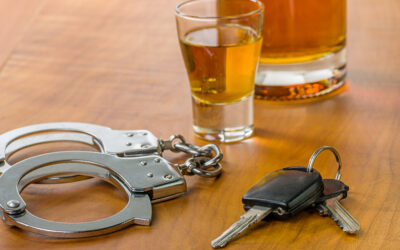In California, all forms of driving on a suspended license are illegal and involve criminal penalties. However, the state views driving on a suspended license as more serious if the license was originally suspended for DUI. This includes DUIs related to alcohol and those related to drugs.
The penalties can be serious, so if you’ve been cited or arrested for a violation of CA Vehicle Code 14601.2 – Driving With a License Suspended For DUI, it is advisable to reach out to a Los Angeles DUI lawyer as soon as possible. Let’s examine what this California Vehicle Code means and how it may apply to your situation.
Driving on a Suspended License in California (Especially After a DUI)
If you’ve been caught driving on a suspended license in California, you’re probably feeling overwhelmed—and that’s completely understandable. This is a serious charge, and the consequences can be tough, especially if your license was suspended due to a DUI.
California takes these situations seriously, and the law comes down harder when the original suspension is tied to a DUI—whether it involved alcohol or drugs. Similar rules apply if your license was suspended because of reckless driving or refusing a blood or breath test.
If you are facing these charges, it is advisable to contact a criminal defense law firm and begin working with a DUI attorney immediately.
What Is California Vehicle Code 14601.2?
California Vehicle Code Section 14601.2 says that it’s illegal to drive if your license was suspended or revoked because of a DUI conviction—and you knew about the suspension.
Here’s how it’s worded: “A person shall not drive a motor vehicle at any time when that person’s driving privilege is suspended or revoked for a conviction of a violation of Section 23152 or 23153 if the person so driving has knowledge of the suspension or revocation.”
In plain English: If you’re caught driving after a DUI-related suspension—and you knew your license was suspended—you could be charged under VC 14601.2.
What Are the Penalties?
The penalties under this law can be serious—even for a first offense:
- 10 days to 6 months in jail
- Fines between $300 and $1,000 (plus additional fees)
- 3 to 5 years of probation
- A mandatory ignition interlock device on your vehicle (in many cases)
Second Offense (Within 5 years)
If this isn’t your first time being charged under this section, the consequences of a subsequent offense get worse:
- Up to 1 year in county jail
- Fines up to $2,000
- Harsher probation terms—or possibly no probation at all
Additional Penalties (Besides License Suspension) You Might Face
Beyond the basic penalties, there are some other issues that can come up:
- Your driver’s license could be suspended for an additional six months
- You’ll likely get points on your driving record (which can lead to a longer suspension if you accumulate too many)
- Auto insurance rates may spike
- The judge could order community service, DUI school, or even impound your motor vehicle
- If you’re already on DUI probation, this counts as a violation, and you could face even more jail time
What if I Didn’t Know My License Was Suspended?
Drivers need to be aware that they must know about their license suspension in order to be guilty under Vehicle Code 14601.2. This means that if you were not informed or were unaware that your license had been suspended, it can serve as a legal defense in court.
Under this code section, “knowledge” of a suspension is presumed if the DMV has mailed a notice of suspension. To argue against this presumption and show that you had no knowledge of your suspended license, you must prove that the DMV failed to mail the applicable notice.
It is essential to stay updated on the status of your driver’s license and any potential suspensions, as ignorance of the law is not an excuse when facing charges related to driving with a suspended license.
What If I Wasn’t Actually Driving?
The law only applies if you were actually driving. If you were sitting in a parked car with the engine off, that’s not the same thing—and it could be a strong point in your defense.
The burden is on the prosecution to prove beyond a reasonable doubt that you were operating the vehicle on a highway or road at the time. If you were sitting in the car with the engine turned off, you might be able to fight the charge.
Police Observations
How the police described your situation and actions in their report will be crucial. If they did not witness you actually driving, it strengthens your defense.
Other Evidence
Additional evidence like surveillance footage, witness testimony about your lack of driving, the vehicle’s location when contacted, and whether the car was drivable can all support your defense.
An effective defense attorney will know how to effectively raise and argue this defense based on the specific facts of your case. If reasonable doubt exists about actual driving, you may avoid a VC 14601(a) conviction.
Understanding the Alleged Offense and Building a Strong Defense
If you’re facing charges for driving on a suspended license after a DUI-related offense, it’s important to understand the alleged offense and the potential for harsher penalties—especially if this is a first-time conviction.
These cases often involve legal concepts like prior DUI convictions, blood alcohol concentration (BAC), or refusal to take a breath or blood test. Each factor can impact how long your suspension period lasts and how seriously the court treats your case.
Losing your driving privileges can affect everything from your job to your family responsibilities. On top of that, insurance companies may raise your rates significantly or cancel your coverage altogether once they learn of the conviction. That’s why a strong defense isn’t just about staying out of jail.
A Lawyer Can Defend You
A skilled DUI defense lawyer can help you understand your rights, challenge the evidence, and look for ways to reduce the impact of the charges. Whether you’re dealing with a misunderstanding or a complicated legal situation, having the right support can make all the difference in how your case plays out.
How a DUI-Related Conviction Can Affect Your Record and Defense Options
A DUI-related conviction can have a lasting impact on your criminal history, especially if it’s tied to driving on a suspended license. In many cases, the court may impose a county jail sentence, particularly if your blood alcohol content (BAC) was high or if there are prior offenses on your record.
If the incident involved an accident, you could also be facing an accident claim—further complicating the legal and financial consequences. That’s why it’s critical to work with a conviction lawyer who understands the full scope of DUI-related charges and can explore all possible avenues for defense.
If there was an accident involved, teaming up with an accident lawyer may also be necessary to protect your interests. Whether you’re fighting the charge itself or trying to minimize the penalties, having experienced legal support can make all the difference in how your case is resolved.
Get Connected With a DUI Lawyer Today For Help
If you are facing criminal charges under CA Vehicle Code 14601.2 – Driving with a License Suspended for DUI, speak with a knowledgeable criminal defense lawyer as soon as possible.
Getting charged under VC 14601.2 is serious, but it’s not hopeless. The earlier you talk to a DUI defense lawyer, the better your chances of avoiding the harshest penalties. Call Los Angeles DUI Attorney to get connected with an experienced criminal defense attorney today, then visit our FAQ page to learn more.







